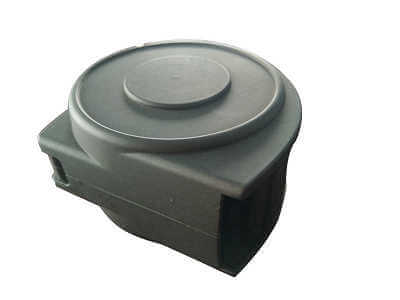Casting is just one of the oldest methods executed on metals. Several products are developed using this technique. China die casting is done by presenting liquified metal into the mold at high or low pressure. Earlier only low-pressure die-casting was practiced, however, nowadays, high-pressure die casting is used more extensively.
Molds are well developed to offer intricate items with spectacular precision and smooth surface finishing. They are made of top-quality metal usually non-ferrous as they have a higher melting point. These molds can be reused thousands of times. Ordinarily, zinc, copper, aluminum, magnesium, lead, pewter, and tin-based alloys among others, are employed for die casting. Among these Aluminum and zinc casting is the most prominent type of die casting procedure.
Why is Zinc used for die casting?
Zinc is an ideal metal for the die casting process as it is highly ductile. It can sustain high pressures and expansion without fracturing. Another advantage that zinc alloy die casting has is its electrical and thermal conductivity as well as cost. Zinc alloys usually have greater influence and durability as opposed to other die casting alloys.

Zinc has the strength to serve just as long as aluminum, furthermore, it has added benefits when it comes to the exterior or surface finishes.
Is Zinc alloy safe for food?
While lightweight aluminum, zinc, and even copper can be employed for food safety mineral components, each necessitates being incorporated after casting, which might potentially leach into foods.
The Importance of Zinc Alloy Die Casting
Not only its accuracy is up to 99.8%, however, cast products additionally can be used raw, since they have a pleasant coating. Zinc die casting usage is nearly 28% in the automobile industry, adhered to by structure as well as hardware domains.
Zinc has actually become one of the most important metals in the auto-parts market, specifically for products like door lock, real estate, retractor equipment and wheels in the safety belt system. By using zinc and its alloys, it is feasible to reach strength, ductility as well as the flexibility that will not be feasible with any other metal.
In addition, zinc can be the best option to get excellent quality artistic elements, with stringent thresholds, impossible to achieve with other products, as well as to get embossing and grooves for mechanical or gear parts.
Zinc alloys compete with various other products in the die casting market: aluminum, cast iron, machined brass, steel, and magnesium, along with zinc, are one of the most generally utilized metals in die casting products.
Key Advantages of Zinc Die Casting
There are many advantages that zinc alloy die casting has to offer;
- The exteriors of the finished products can be made really smooth and polished.
- It is feasible to cast low fluidity metals.
- High dimensional precision can be achieved.
- The casts are able to accomplish high tensile strength and toughness as well.
Zinc alloys are reliable and durable with high dimensional efficiency and thermal conductivity, withstanding corrosion.
CN Manufacture Tech (CNM TECH CO.LTD) is the leading China Die Casting Manufacturer specializing in aluminum, copper, magnesium, and Zinc die casting solutions. We have made a mark in the engineering and automotive industry with metallic alloy parts. Our clients have known us for high-quality standards and prompt delivery of products. For more information, reach out to our official website.

